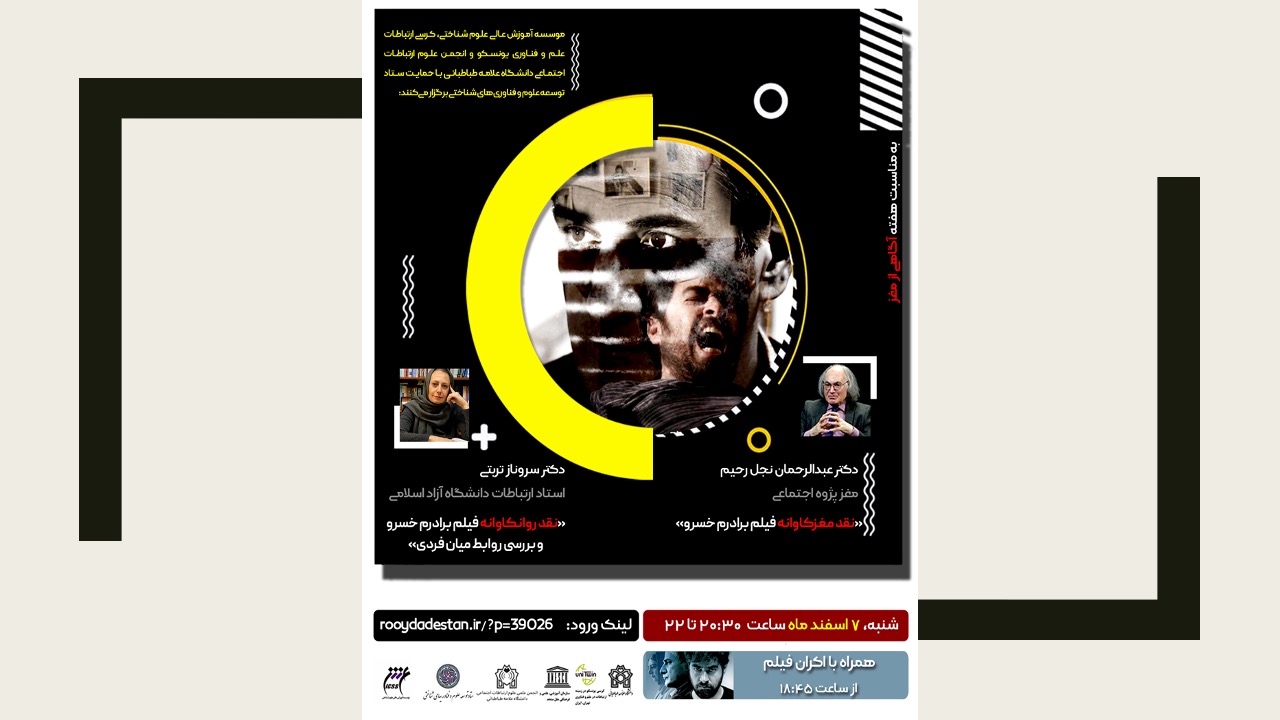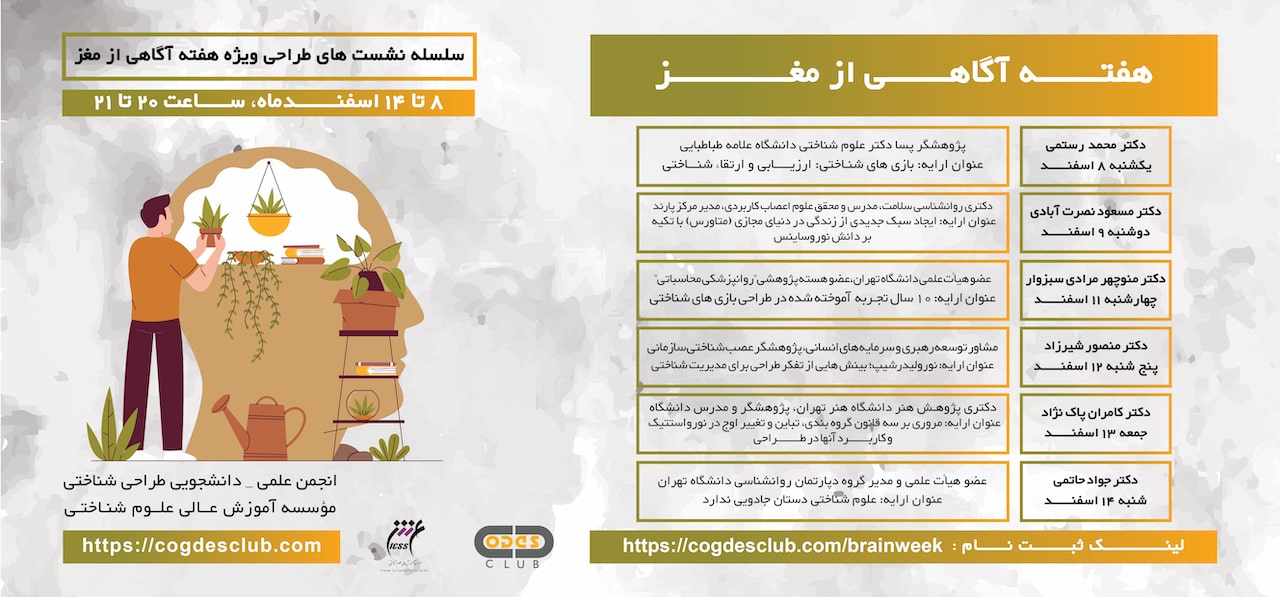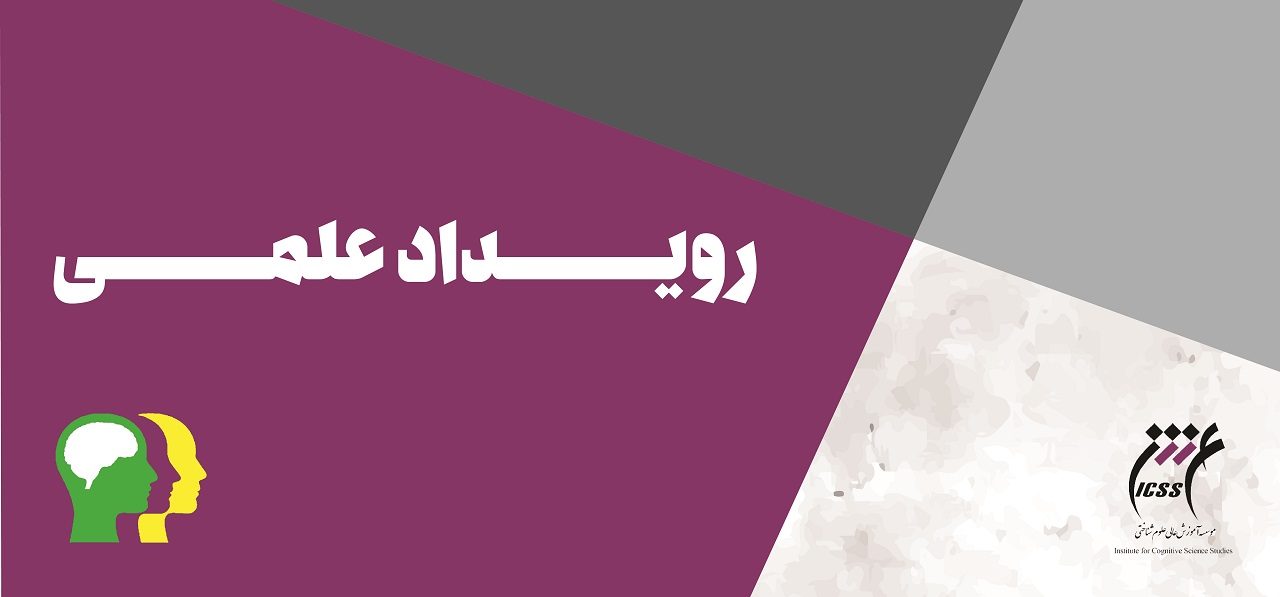
نشست نقد فیلم “برادرم خسرو” از منظر علوم شناختی
موسسه آموزش عالی علم شناختی با همکاری کرسی ارتباطات علم و فناوری یونسکو، انجمن علوم ارتباطات اجتماعی دانشگاه علامه طباطبائی و با حمایت ستاد توسعه علوم و فناوریهای شناختی به مناسبت هفته آگاهی از مغز در تاریخ ۷ اسفند ماه ساعت ۲۰:۳۰ الی ۲۲ نشسـت نقد فیلم “برادرم خسرو” را به صورت آنلاین برگزار میکند. در این نشست جناب آقای دکتر عبدالرحمان نجل رحیم، مغز پژوه اجتماعی، به نقد مغزکاوانه فیلم میپردازند و سرکار خانم دکتر سروناز تربتی، استاد ارتباطات دانشگاه آزاد اسلامی، از منظر نقد روانکاوانه به بررسی روابط بین فردی میپردازند....
مطالعه متن کامل
هفته آگاهی از مغز
“هفتهی آگاهی از مغز” یک کمپین جهانی برای ایجاد، ارتقای علاقهمندی عمومی و حمایت از پژوهش های...

فیلم نشست های سمپوزیوم کاربرد هوش مصنوعی در علوم شناختی
نسخه ضبط شده از جلسات و سخنرانی های ارائه شده سمپوزیوم کاربرد هوش مصنوعی در علوم شناختی...

نشست علمی – موضوع: آیا تصویر برداری مغز می تواند ساختار ذهن را بازگو کند؟
(Can Neuroimaging Inform Architecture of brain) – سخنران: راسل پلدرا (Russel Poldrack) استاد گروه روانشناسی دانشگاه استنفورد...

شروع کلاس های درس موسسه از ۳ اسفند – تاخیر در ثبت نام
کلاس های درس دوره های دکتری تخصصی و کارشناسی ارشد موسسه آموزش عالی علوم شناختی از روز...

کلاس های درس موسسه آموزش عالی علوم شناختی از سوم اسفند ماه تشکیل می شود
کلاس های درس دوره های دکتری تخصصی و کارشناسی ارشد موسسه آموزش عالی علوم شناختی از روز...

مجموعه نشست های گروه رسانه
مجموعه نشست های پیشکسوتان رسانه در روزهای دوشنبه مورخ ۲۵ بهمن ماه و ۹ و ۲۳ اسفند...

سمپوزیوم توانبخشی شناختی
محور:- هنر توانبخشی در بهبود اختلالات روانپزشکی و نورولوژی – روش های مبتنی بر ابزار در توانبخشی...

فیلم از جلسات سمینار علوم اعصاب شناختی
نسخه ضبط شده از سمینار علوم اعصاب شناختی برای علاقمندان در صفحه تلگرام موسسه آموزش عالی علوم...

